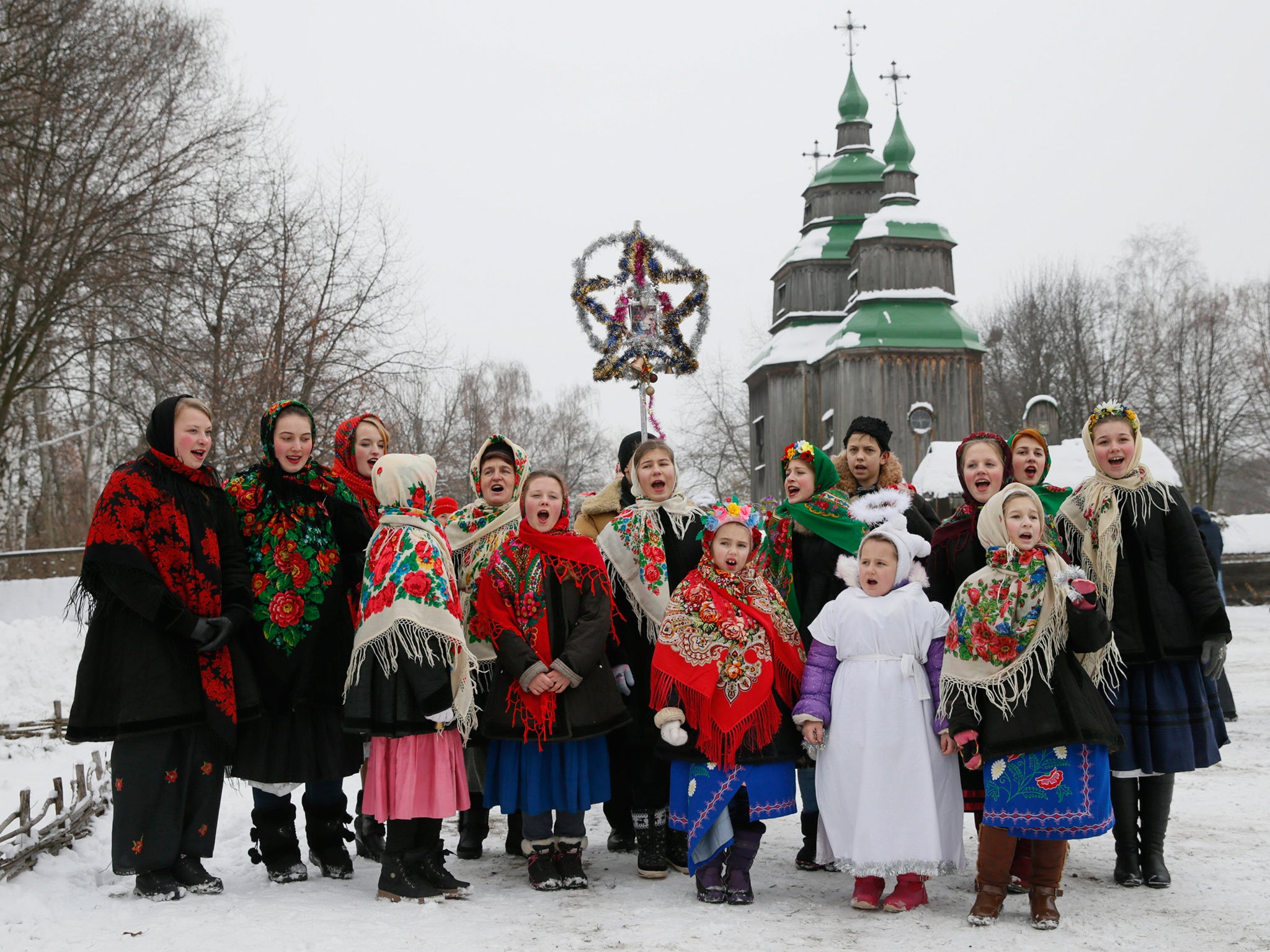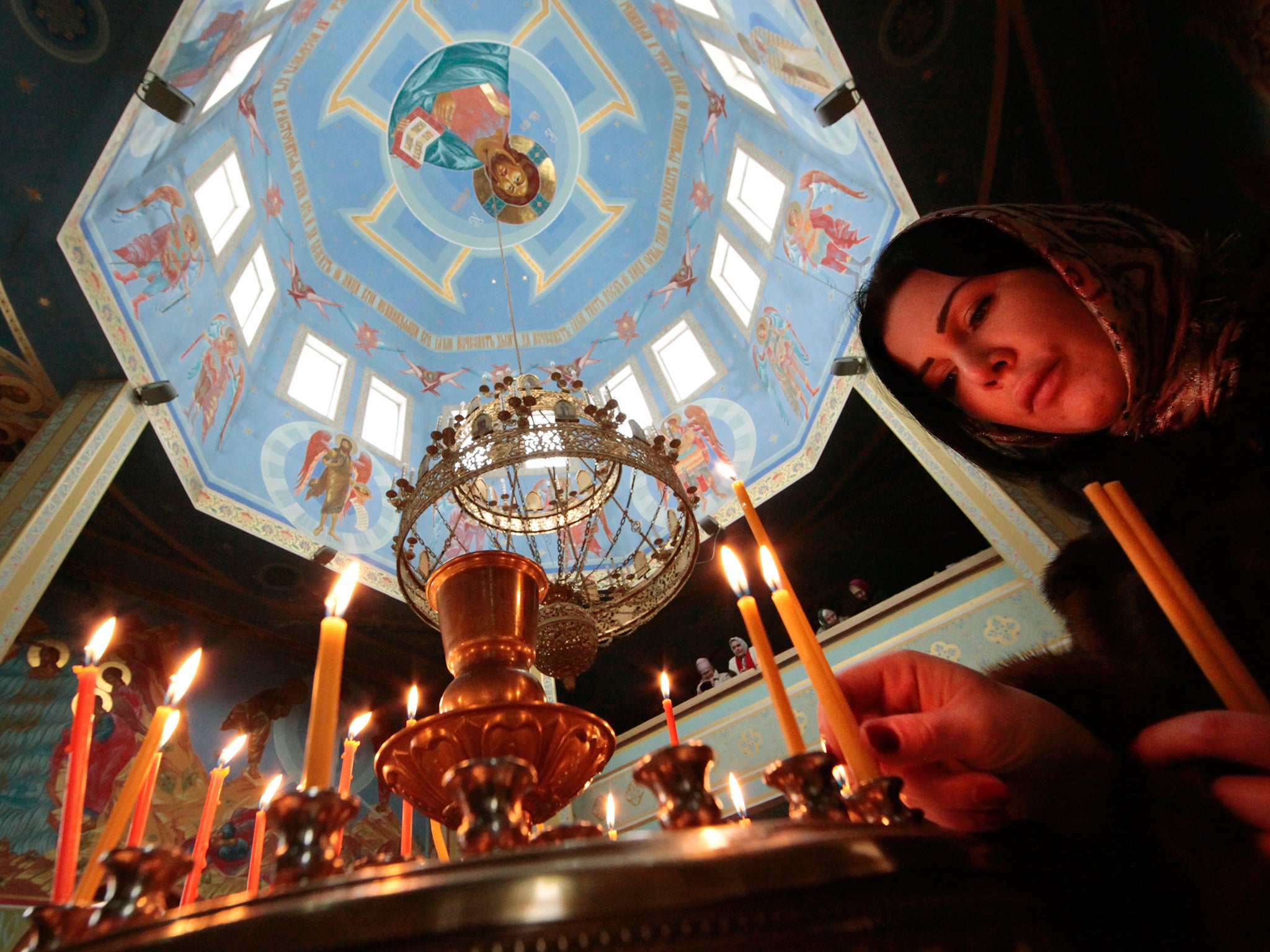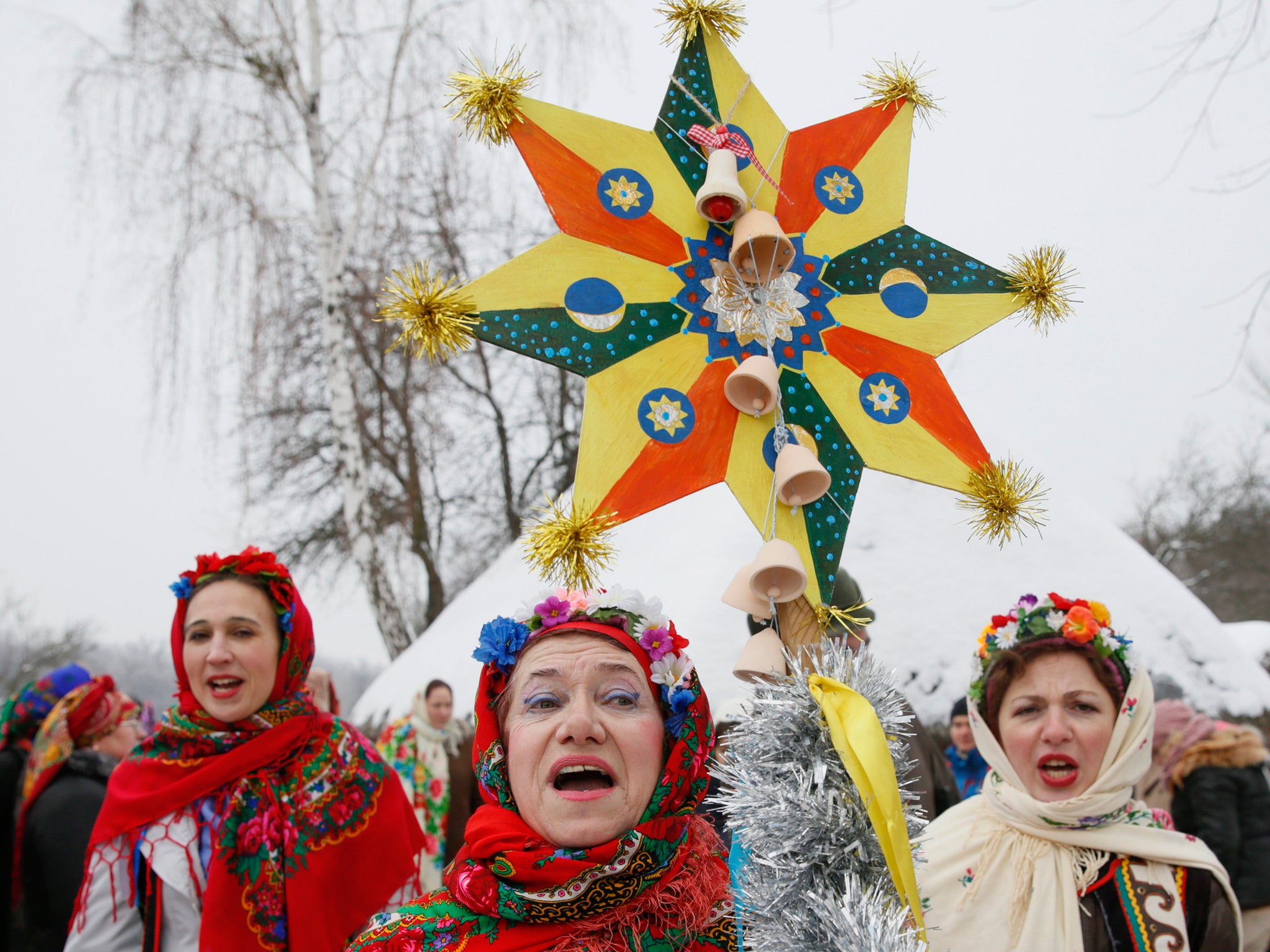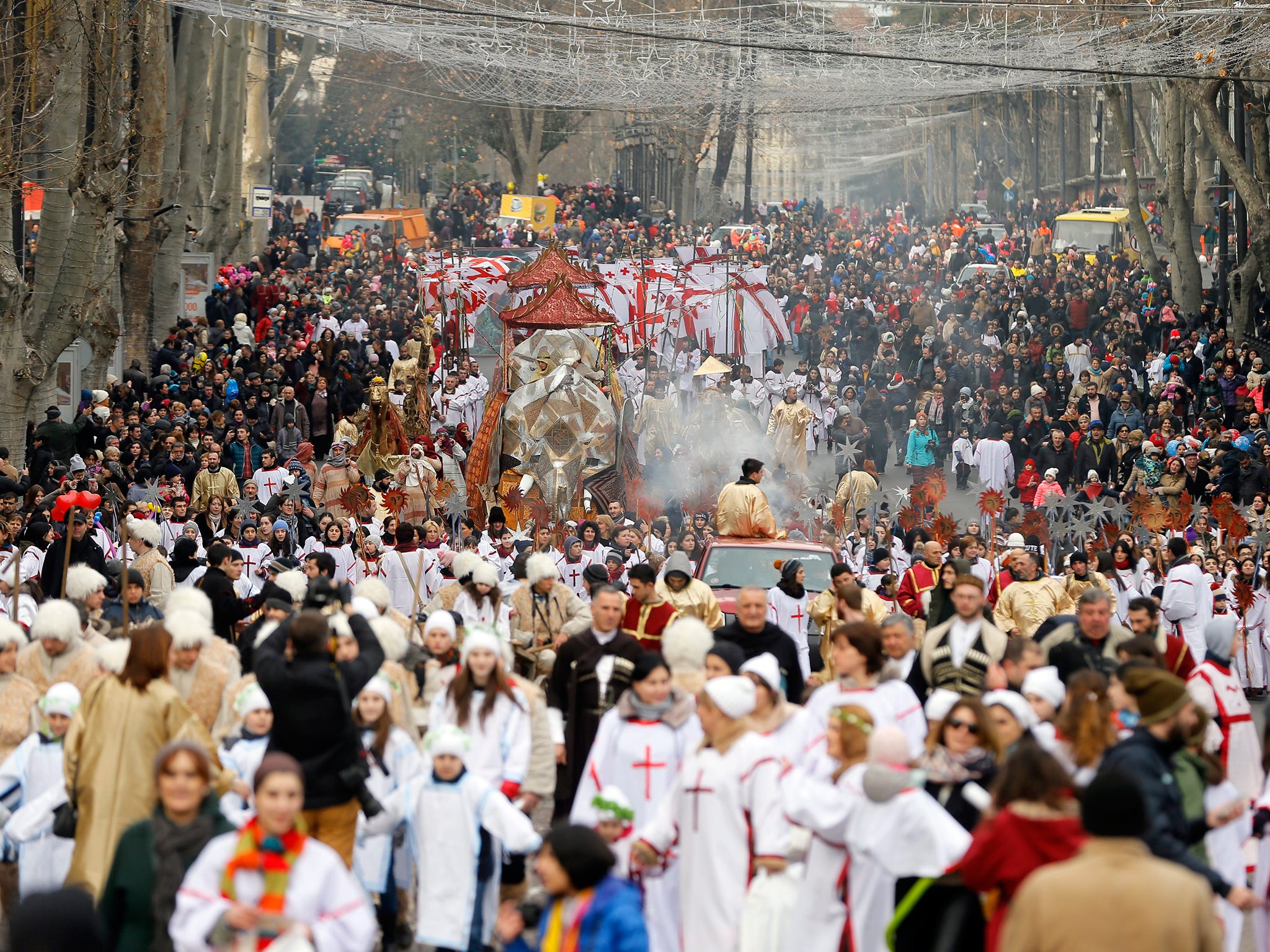Orthodox Christians celebrate Christmas around the world
Nations including Russia, Ukraine and Ethiopia observe the Julian Calendar, currently 13 days behind the Gregorian

Hundreds of millions of people across the world are celebrating Christmas Day.
While those in the UK, America and much of Europe celebrate the birth of Christ in December , there are roughly 100 to 200 million Orthodox Christians for whom January 7 is the traditional day of celebration.
That’s because they still observe the Julian Calendar, which is currently 13 days behind the Gregorian calendar used by most of the modern world.
Countries including Russia, Belarus, Egypt, Ethiopia, Georgia, Kazakhstan, Macedonia, Moldova, Montenegro, Serbia, and Ukraine are marking the occasion with their own unique national traditions.
In Russia, which has the largest Orthodox Christian community in the world, an estimated 350,000 people were in Moscow for Christmas liturgies, traditionally held on Christmas Eve, January 6.
Families then return home for a 12-course supper, with a dish for each apostle.

The following day they attend church and enjoy a Christmas feast – goose in sour cream sauce being a popular delicacy.
Ukraine holds similar celebrations, with the addition of dressing up and carol-singing door to door.

In Serbia, Christmas begins when an oak log or branch known as a badnjak is brought into the home and placed on the Christmas fire.
Worshipers in Ethiopia are up for a 4am mass to celebrate ‘Ganna’, having fasted for the previous 43 days.
Many wear a thin white cloth garment known as a shamma. A traditional Christmas meal would be a ‘wat’ - a hot, spicy meat stew, washed down with honey wine.
For Romanians, today is the last day of celebrations which began on December 20. Traditional meals include gammon and pork chops carved from a pig slaughtered on the first day of the festivities (St. Ignatius's Day).
A similar tradition to Serbia is prominent in Macedonia, where celebrations traditionally start a few days earlier on December 5, a day called 'Kolede’.
On this day, children sing carols to their neighbours and are and given fruit, nuts and money in return.

They eat a vegan meal on Christmas Eve, which is preceded by the lighting of the yule log, called a ‘badnik’.
As in Ethopia, Christians in Egypt celebrate the run up to Christmas by fasting for 43 days, subsisting on a mainly vegan diet. The fast is broken on Christmas Eve with a meal containing meat, eggs and butter. A popular dish is a lamb soup called Fata.
Georgians celebrate Christmas with a parade through the street, known as an Alilo. Curiously, although celebrations are held on January 7, they sing a popular Christmas song which includes the words: “On 25th December, Christ was born in Bethlehem.”
Join our commenting forum
Join thought-provoking conversations, follow other Independent readers and see their replies
Comments